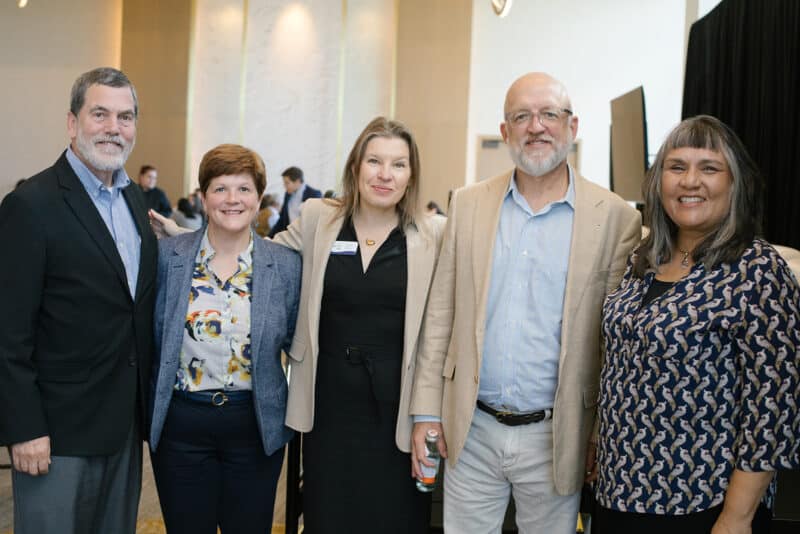94%
Attendees said it was the best event they attended in 2024
Coal community leaders remain focused on building capacity and driving historic investment to strengthen local economies
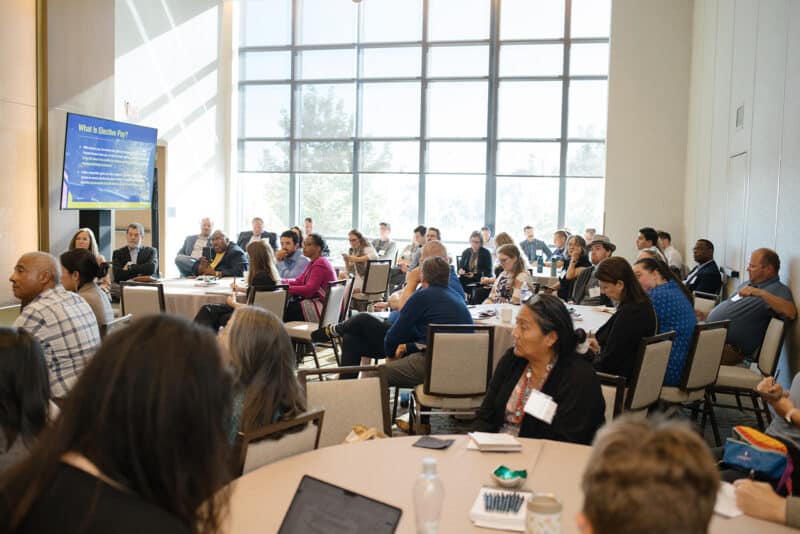
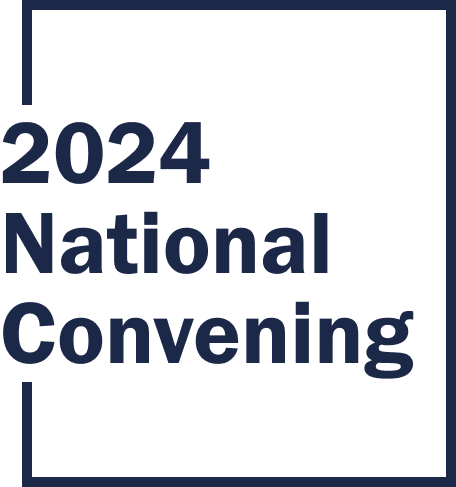
In October 2024, our National Convening in Washington D.C. brought together coal transition leaders and JTF partners to tackle pivotal questions: how coal communities can capitalize on landmark federal investment, how to sustain this momentum amid political uncertainty, given an upcoming presidential election, and how collaboration—not competition—can amplify impact.
The 2024 National Convening emphasized the importance of staying focused on building capacity and generating wealth in coal communities, through a variety of strategies.
Speakers and participants showcased the collective wisdom of leaders from around the country as they shared stories about how they are transitioning their hard-hit local economies.
Together, we are proving that a just transition is not just possible but essential, and that the strength of our network is critical to creating lasting economic success.

Attendees said it was the best event they attended in 2024
Attendees said they are likely to attend again
Attendees developed new connections for their networks
We welcomed four community leaders to our main stage to share impactful and personal stories about the resilience of their communities in the face of the transition away from coal, facilitated by renowned storytelling coach, Lea Thau.
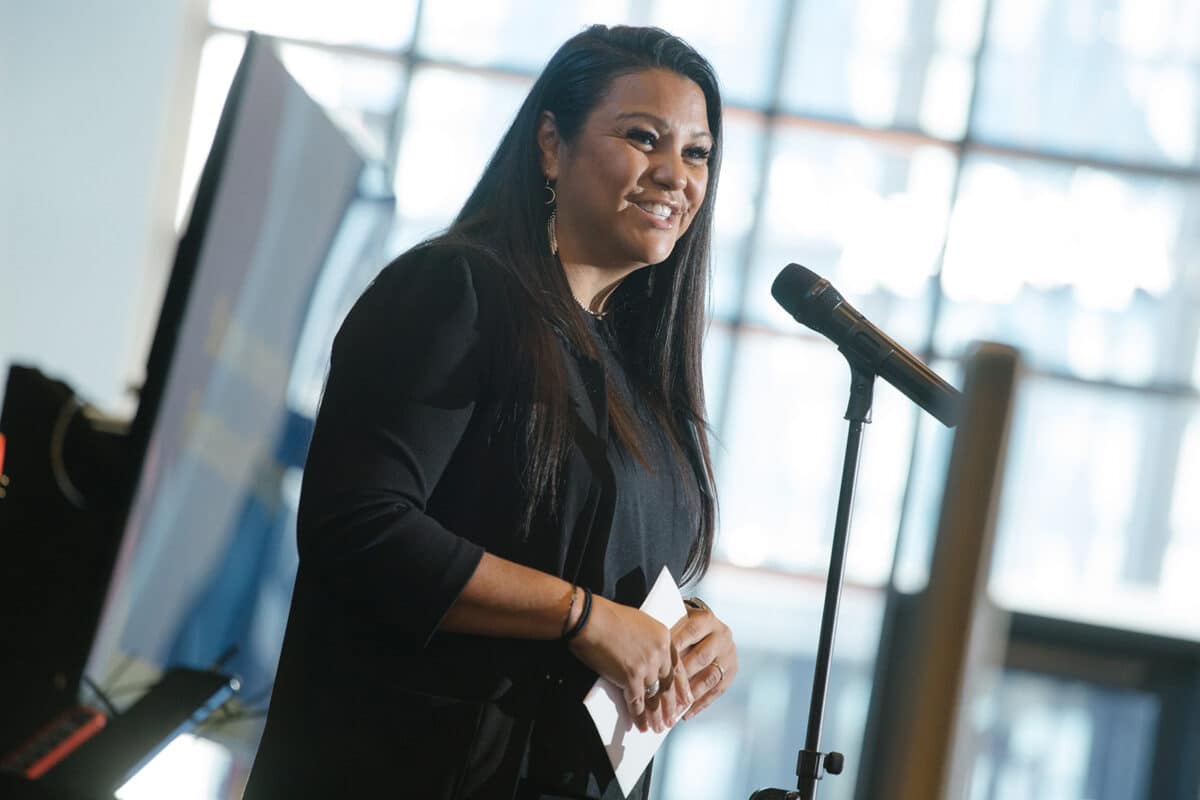
Wind River Development Fund
Erika, a member of the Northern Arapaho tribe, grew up navigating the complexities of identity and economic hardship on the Wind River Reservation in Wyoming. Raised in a family that worked tirelessly to overcome poverty, she saw firsthand the barriers Indigenous entrepreneurs face. Now, she is helping to break those cycles by securing funding for projects that support economic self-determination. She spoke powerfully about coal’s historical role in her community, the challenges of economic transition, and her commitment to ensuring that future generations don’t just survive, but thrive.
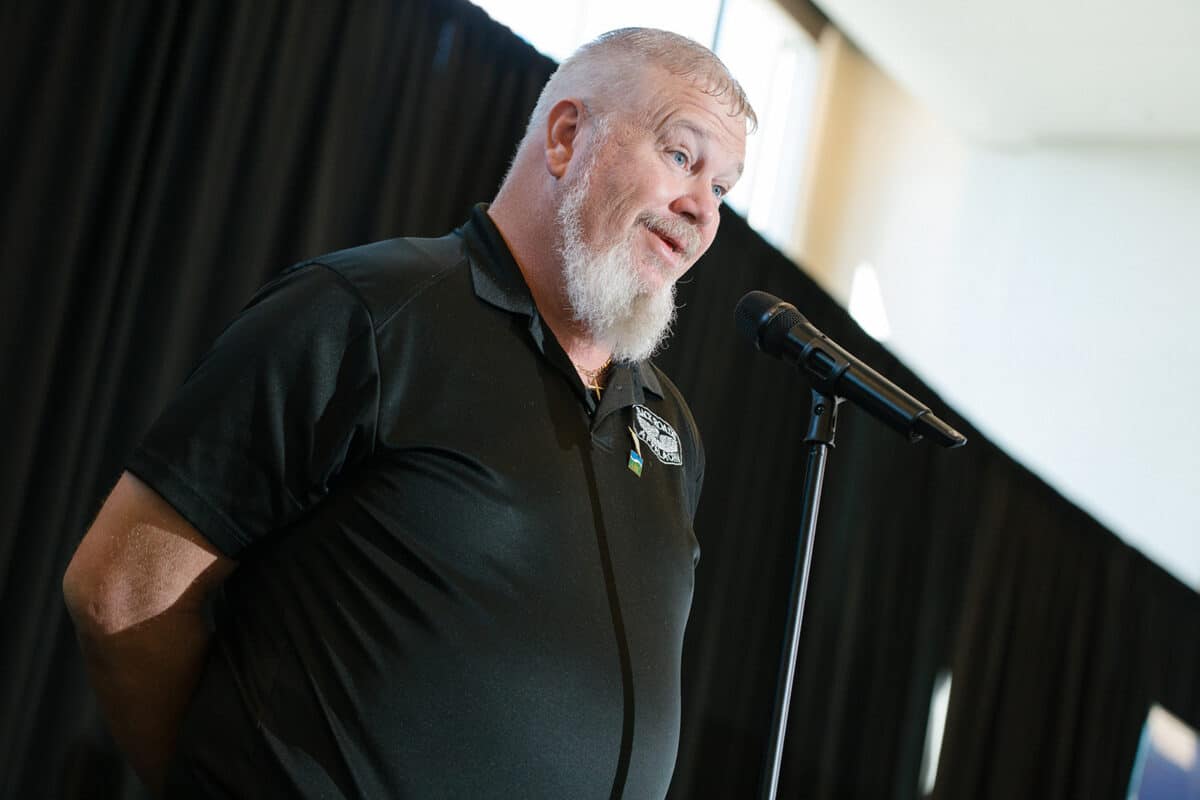
Backroads of Appalachia
Erik shares his deeply personal journey from growing up in a struggling coal community in Kentucky to serving in the U.S. Navy and ultimately finding his purpose in tourism-driven economic development. Drawing from his experiences with resilience, hardship, and a commitment to giving back, Erik founded Ride for Hope and Backroads of Appalachia, using motorsports tourism as a tool to revitalize Eastern Kentucky’s economy after the community’s transition from coal. His story highlights the power of community, innovation, and determination in the face of economic decline.
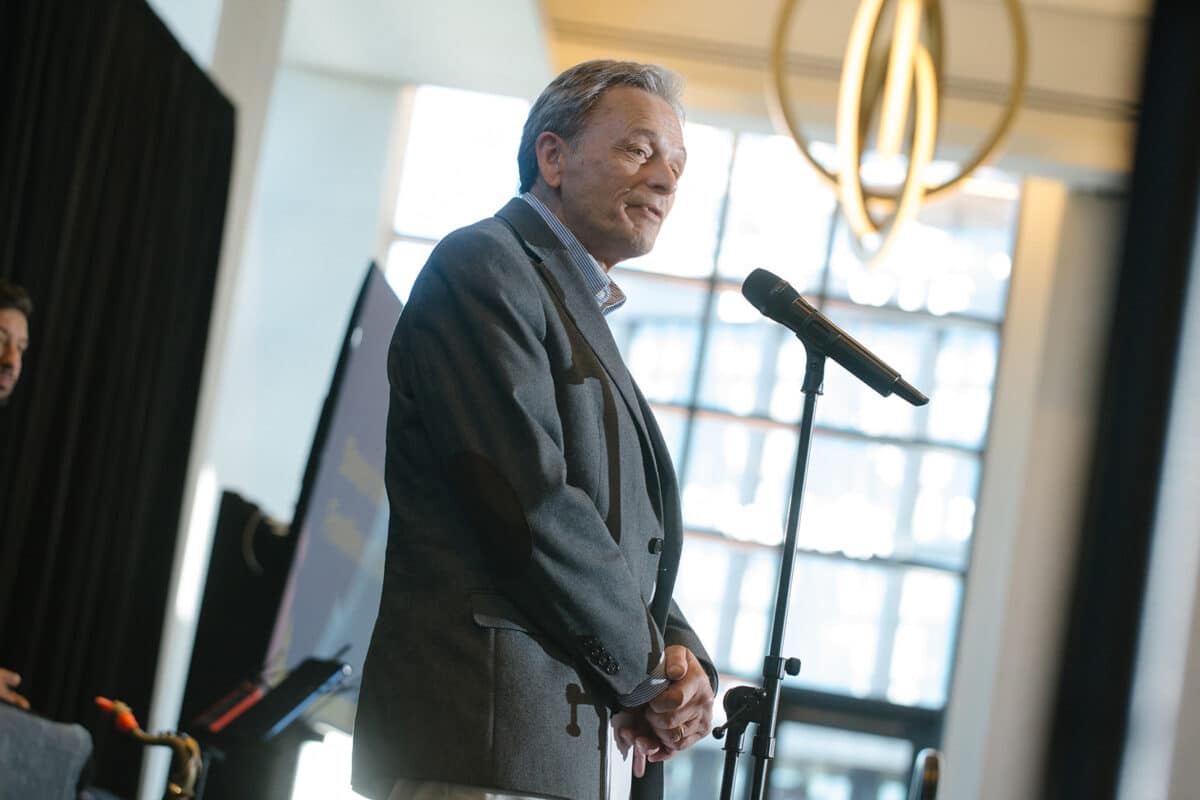
Initiative Foundation
Don shares his family’s journey through economic and social upheaval, from the Great Depression to the Vietnam War era, shaping his path in economic development. He shares the profound impacts of the planned closure of Minnesota’s largest coal plant and the successful transition efforts that turned a looming economic crisis into an opportunity for sustainable growth. Don emphasized the importance of collaboration, understanding different stakeholders’ needs in making a just transition work.
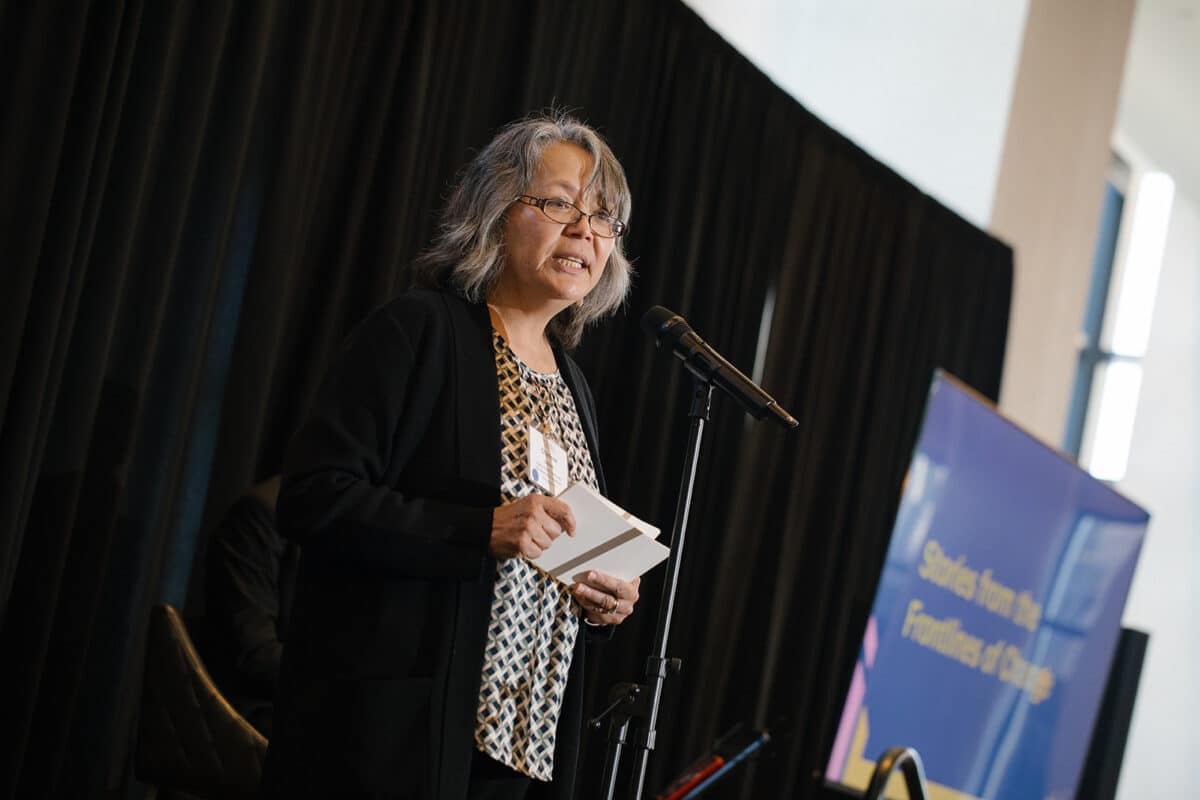
Plenty Doors Community Development Corporation
Charlene, an Apsáalooke leader, offered a powerful reflection about growing up on the Crow Reservation to founding an organization focused on economic empowerment, workforce development, and community health. She shared how coal once provided financial support to families but has since declined, leaving lasting challenges. Her work now centers on creating opportunities for her community through business support, water access, and job training, working toward a more stable and self-sufficient future.
Total Attendees
The 2024 National Convening brought together 199 leaders from across sectors—federal agencies, philanthropy, labor, local and state governments, early-career fellows, and community-based organizations. This diverse coalition reflects the collaborative strength driving our transition work forward.
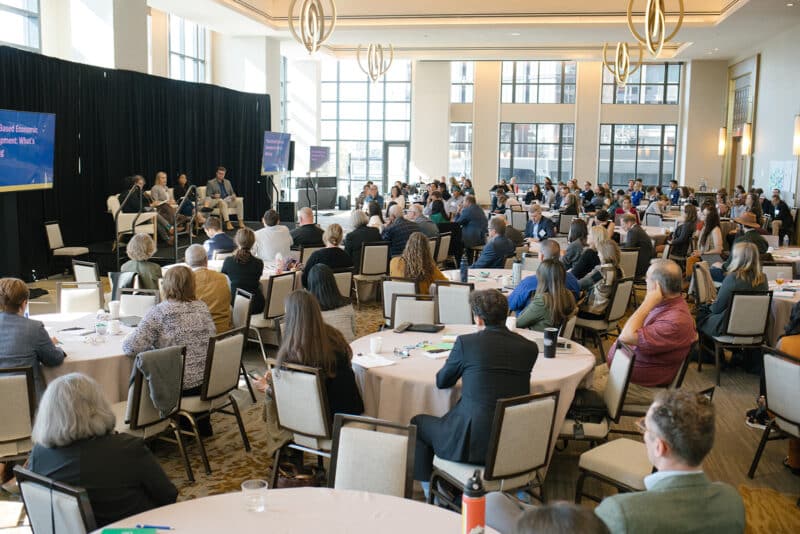
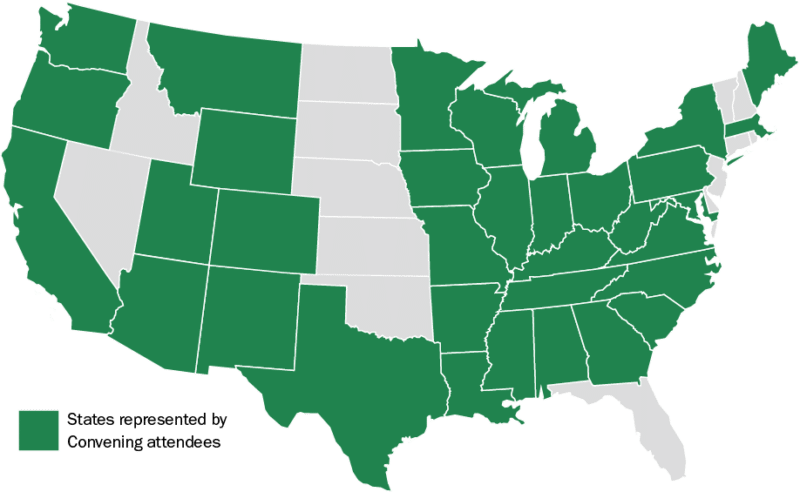
Tribes: Navajo Nation, Navajo Nation – Shonto Chapter, Hopi Tribe, Mississippi Band of Choctaw Indians, Eastern Shoshone Tribe, Northern Arapaho Tribe, Crow Nation
The JTF introduced our inaugural cohort of Coal Communities Get Ready! Challenge winners, 12 hard-hit communities from across the country who received awards valued at $250K to create bold, innovative projects and build readiness to apply for future federal funding.
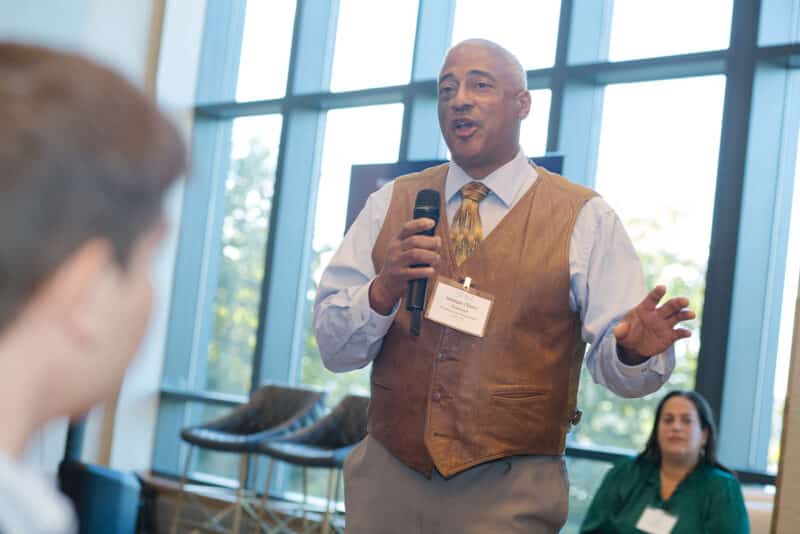
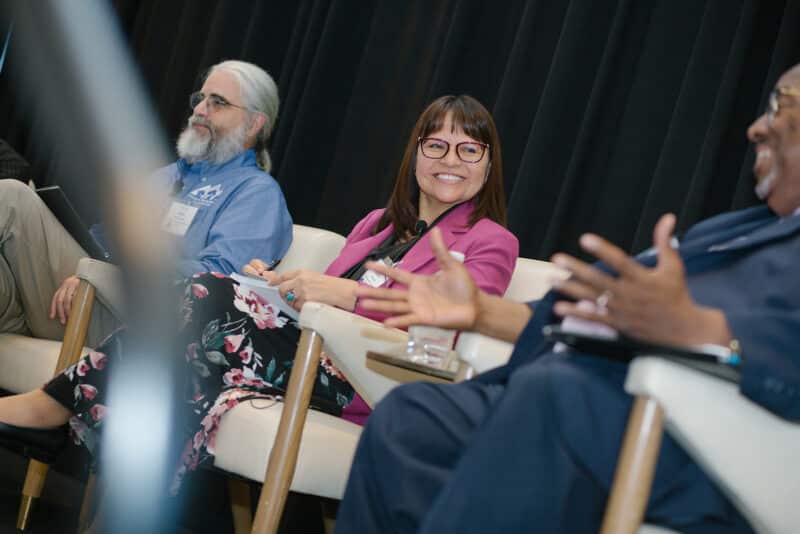
Attendees immersed themselves in timely workshops and learning labs, expert panels, networking opportunities, and powerful storytelling sessions told by visionary leaders.
Our attendees tap into a unique opportunity to shape the future of energy communities in transition, make meaningful connections, and learn from thought leaders and peers driving impactful change in their communities.
